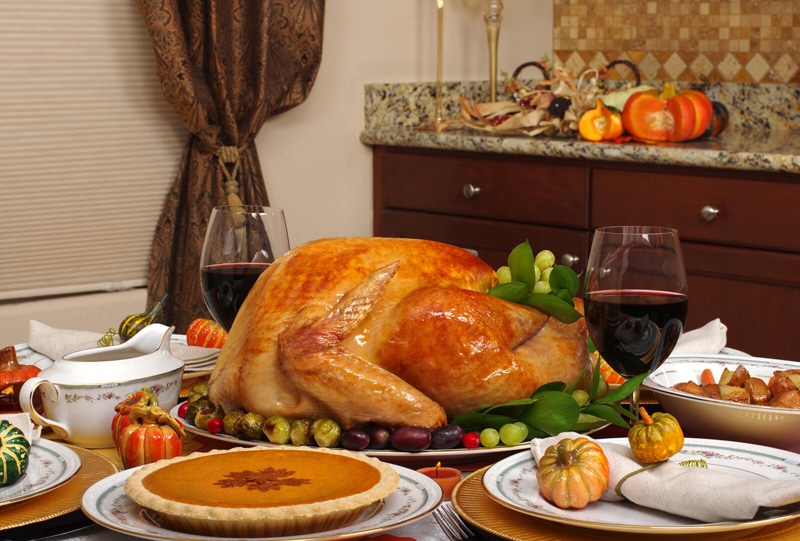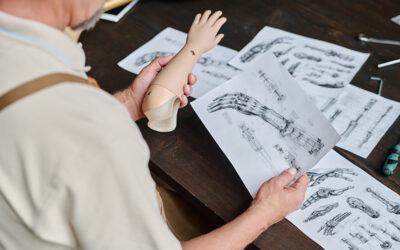Thanksgivings is a blissful holiday season when people get together with family and friends to celebrate with a delicious feast. The turkey is a Thanksgiving staple and households across America look forward to taking the bird out of the farm and putting it on the table. But turkey time comes with its own hazards and physicians practices and their medical billing and coding companies need to brush up on the season-related ICD-10 codes.
Thanksgiving is celebrated every year on the fourth Thursday in November. This year, Thanksgiving Day falls on November 28, 2019. Popular Thanksgiving season pastimes include traveling, visiting the countryside, watching football and parades, and shopping to grab Black Friday and Cyber Monday deals. People also donate to food banks and communities hold food drives and host free dinners for the less fortunate. The Thanksgiving feast is the most important part of the celebration. With a large turkey as the centerpiece, the traditional menu includes mashed potatoes, gravy, stuffing, cranberry sauce roasted vegetables, cornbread, and pumpkin pie. But it’s the turkey that gets all the attention. The National Turkey Federation reports that, today, nearly 90 percent of Americans eat the bird-roasted, baked or deep-fried – on Thanksgiving.
One thing people have to really thankful for is that most physicians’ offices will have special holiday hours and that their providers will be available for emergencies. In fact, that tussle with the enormous turkey is not easy and often results in a variety of injuries from encounters with the bird to carving, deep frying and overeating! Let’s take a look at the weird, funny and unfortunate turkey-related troubles that physicians deal with in the Thanksgiving season and the ICD-10 codes for them:
-
- Encounters with turkey: Farm visits are a fun-filled activity for families over the Thanksgiving weekend. In addition to a lot of farm animals, a stroll through a farm offers the opportunity to get a close glimpse of the star of the show – the heritage-bred turkey! But it’s hardly surprising that turkeys are on the edge during Thanksgiving and will likely nip, chase or scratch anyone who gets close. ICD-10 offers codes to report these injuries:W61.43 pecked by a turkey
W61.49 (other contact with a turkey)As these are non-billable codes, they need to be reported with a greater level of detail. For W61.43, use 43XA, 43XD and 43XS to report initial encounter, subsequent encounter and sequela, respectively. Code W61.49 will also require the same level of specificity. - Farm as the Place of Occurrence: Use Y92.7 to report injuries that occurred on a farm. This category code gives the location and not the diagnosis. ICD-10 also provides specific codes to report the exact location of the injury
- Y92.7 Farm as the place of occurrence
Y92.71 for barn
Y92.72 for chicken coup
Y92.74 for orchard - Kitchen knife injuries: Cuts to the hand when carving the fowl is a common Thanksgiving injury that even an experienced carver can suffer. Cuts can range from a minor finger/thumb laceration to deep cuts and excessive bleeding. Even a jagged bone end can pierce the skin and cause cuts with potential for infection.
The ICD-10 codes for knife injuries are: - W26.0XXA: contact with knife
W29.1: contact with electric knife
W29.1XXA …… initial encounter
W29.1XXD …… subsequent encounter
W29.1XXS …… sequel - Deep-frying turkey: The turkey is traditionally roasted, but deep frying the bird has become extremely popular. Deep frying can provide a sumptuously moist result on the inside with the perfect crispy-skinned exterior. But deep-frying turkey comes with hazards such as explosions and grease fire occurrences:
-
- Hot oil spills caused if the fryer unit tips over
- Oil overflow if the turkey is placed in a pot overfilled with oil, resulting in a fire
- Spillover effect and risk of fire and explosion when a partially frozen (wet) bird is put into the oil
- Fryer units lack thermostat controls which pose risks of oil overheating to the point of causing a fire
- Burn hazards due to contact with extremely hot pot lid and pot handles
- Encounters with turkey: Farm visits are a fun-filled activity for families over the Thanksgiving weekend. In addition to a lot of farm animals, a stroll through a farm offers the opportunity to get a close glimpse of the star of the show – the heritage-bred turkey! But it’s hardly surprising that turkeys are on the edge during Thanksgiving and will likely nip, chase or scratch anyone who gets close. ICD-10 offers codes to report these injuries:W61.43 pecked by a turkey
A 2013 Live science article quoted Dr. Robert Glatter, an emergency physician at Lenox Hill Hospital in New York, as saying, “People also drop their turkeys, causing second-degree burns to the tops of their feet, contusions and the occasional toe fracture. He noted that sometimes, cooks slip on their turkeys and hit their heads.
All of these incidents can cause injuries that would need a visit to the emergency room. The most common ICD-10 code for injuries related to deep-frying turkey is:
X10.2: Contacts with fats and cooking oils
This code can be used to report an explosion or grease fire occurrences. For reimbursement purposes, provide more specificity with initial encounter, subsequent encounter and sequela. Additional codes may be needed to report specific injuries. For instance:
-
-
- Codes T20-T25 – to report burns and corrosions of external body surface, specified by site. The site refers to the anatomical location that is affected by the burn or corrosion.
- Codes T31/T32 – to code extent of injury, since burns and corrosions are classified according to the extent or percentage of the body surface involved)
- Additional code(s) to report:
-
- External cause: to identify the source, place, and intent of the burn, and
- Agent: to identify the chemical substance of the corrosion
- Points to note when reporting burn injuries: Two important to things to keep in mind when reporting burns are:
- ICD-10 guidelines recommend reporting appropriate external cause codes for burn patients, though not all payers accept these codes.
- The diagnosis code that reflects the highest degree of burn should be sequenced first.
- Overeating: Overindulgence in food and drink is one of the most common problems around Thanksgiving. After stuffing ourselves with turkey, mashed potatoes and pumpkin pie, we watch the game or take a nap, and then eat again. Many people end up as stuffed as the turkey. The combination of excessive food and drink can result in a surge in epinephrine or norepinephrine, which triggers atrial fibrillation (an irregular heartbeat), according to Dr. Glatter (www.livescience.com). Worries about cooking turkey right and dealing with the hectic pace of the holiday can give people sleepless nights. Over Thanksgiving, physicians end up seeing more cases of nausea, vomiting, intestinal blockage heartburn, indigestion, upset stomach, diarrhea, and sleep problems. The key ICD codes they need to be ready with include:
-
R14.0 abdominal distension
R14.2 eructation
R14.3 flatulence
K30 functional dyspepsia (indigestion)
R12 heartburn
Z72.820 sleep deprivation
-
-
- Salmonella contamination: As turkey can carry salmonella, not cooking it thoroughly can cause food poisoning. In March 2019, the CDC reported that a company in Mount Olive, North Carolina recalled about 78,164 pounds of raw ground turkey products because they may have been contaminated with Salmonella. The ICD-10 code category to report the toxic effects of foodstuff is:
-
Category A05, Other bacterial foodborne intoxications, not elsewhere classified,
A05 has several codes for the common bacteria that produce toxins that cause infections.
The CDC recommends that turkey be completely thawed and cooked at a minimum of 325 degrees Fahrenheit. Cooking stuffing outside is also recommended to reduce the risk of foodborne illness.
As families gather to enjoy good food and each other’s company, taking precautions can reduce risks of these incidents. But if accidents happen, patients can rely on emergency physicians to provide them with the care they need. Providers, in turn, can depend on experienced medical billing companies to report the right codes for correct and timely reimbursement.




